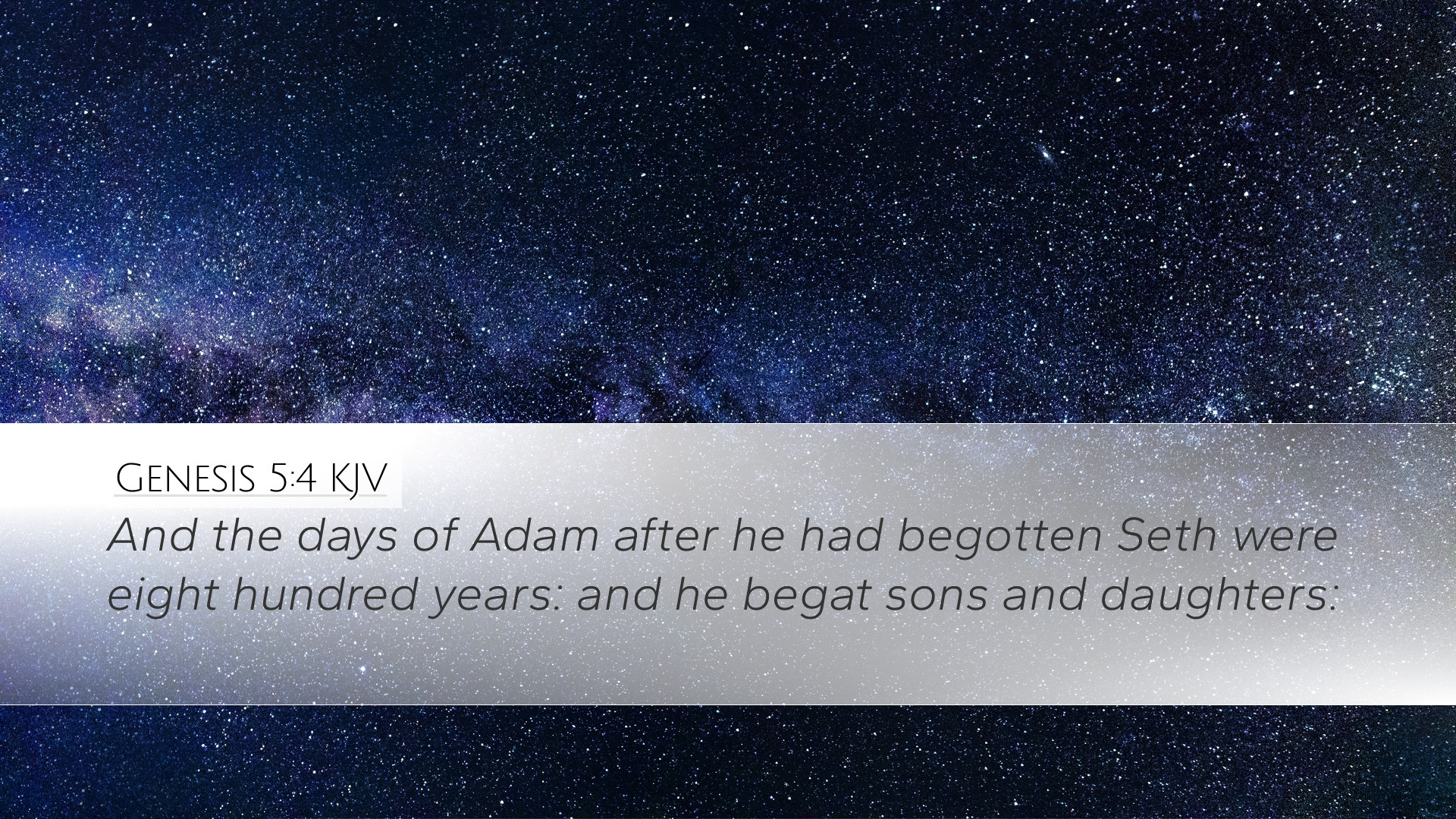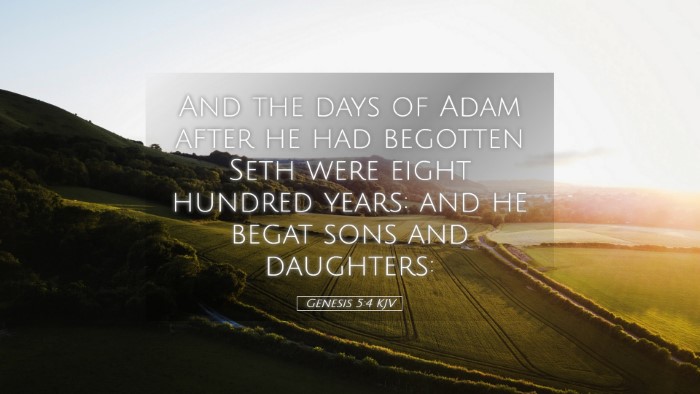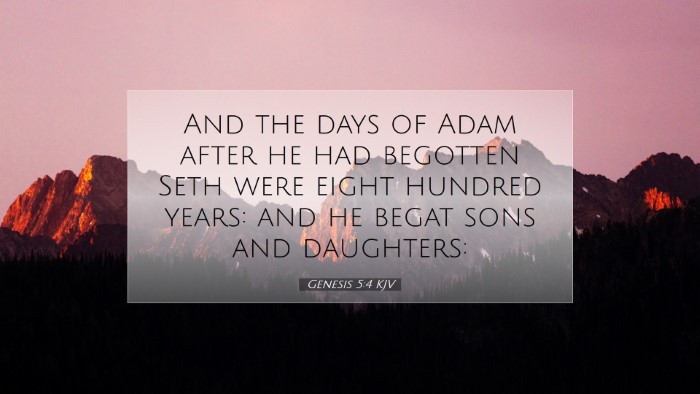Genesis 5:4 Commentary
Genesis 5:4 states: "And the days of Adam after he had begotten Seth were eight hundred years: and he begat sons and daughters." This verse is a part of the genealogical record that spans early human history and holds significant insights for understanding the context of the biblical narrative regarding creation, sin, and God's plan for redemption.
Overview of Genesis 5
This chapter provides a brief genealogy from Adam to Noah, emphasizing the longevity of the patriarchs in their post-Fall state. It highlights the continuity of life despite the introduction of sin into the world.
Implications of Longevity
Several commentators reflect on the meaning of Adam's long life:
- Matthew Henry: He posits that the long lifespans of early humans were a result of God's original creation order, before the full effects of sin and deterioration set in. Henry notes that these long lives allowed for the preservation of knowledge and experience, as generations could learn from one another.
- Adam Clarke: Clarke emphasizes that these lengthy lifespans serve to illustrate the grace of God in extending opportunities for repentance and relationship with Him. He points out that the size of Adam’s family, with many sons and daughters, indicates God's command to "be fruitful and multiply." This reflects God’s desire for humanity to flourish despite the fallen state.
- Albert Barnes: Barnes suggests that the extended lifetimes of figures like Adam were part of God’s providential plan, allowing for the establishment of a godly heritage amidst a sinful world. He highlights the importance of Adam as a figure who not only begot children but did so in a covenantal context.
Significance of Seth
In this verse, the reference to Seth is particularly crucial. Adam's experience of loss through Abel's death and the continuation of his lineage through Seth carries profound theological implications:
- Theological Reflection: Seth's birth is seen as a restoration of hope. Through Seth, the righteous line is preserved, which ultimately leads to the promise of redemption. Both Matthew Henry and Adam Clarke indicate that Seth represents God's grace in providing a godly lineage after the violence introduced by Cain.
- Historical Context: Understanding the significance of Seth also layers the narrative of Genesis with themes of divine election and favor. It underscores the truth that God's plans unfold through human history despite widespread sin and failure.
- Spiritual Application: The birth of Seth invites reflection on the role of godly offspring in nurturing faith communities. It raises the question of how modern believers can continue to be faithful in their familial roles, passing on the faith through generations.
The Family Structure
The passage also notes that Adam "begat sons and daughters." This bears out the notion of family as integral to God's design:
- Divine Commandment: The creation mandate in Genesis 1:28 is reiterated here, showcasing the importance of family in God's order. Both Barnes and Clarke underline that this familial structure is foundational for societal and spiritual development.
- Covenantal Relationships: The mention of Adam's sons and daughters emphasizes the dynamics of familial and community relationships in the divine covenant. Communities, as formed through families, are necessary for upholding faith in God’s promises.
- Legacy and Influence: The children of Adam illustrate the potential for both blessing and curse. Families can reflect God's image and love, or, in contrast, perpetuate sinfulness through their choices.
Overall Message of Hope
In summary, Genesis 5:4 weaves together themes of grace, covenant, and the divine plan for humanity. The lives of the patriarchs, their lengthy existence, and their familial relationships speak to God's ongoing commitment to redeeming His creation:
- God’s Mercy: The longevity of these early figures serves as a testament to God's mercy and patience with humanity amidst sin. Their lives are rich with opportunities for divinely guided legacy.
- Continuity of God’s Plan: The unfolding mention of additional sons and daughters highlights the idea that God's plan for humanity does not hinge upon singular figures but the collective faithfulness and communal worship of His people.
- Call to Modern Believers: For pastors and theologians today, this verse serves as a reminder of the ongoing opportunity to foster faith within their families, highlighting the importance of nurturing the next generation in the knowledge and love of God.
Conclusion
Genesis 5:4, while seemingly straightforward, encapsulates a range of theological insights regarding lineage, family, and divine grace. It challenges modern readers to consider how they can continue this legacy of faithfulness and be instruments of God's grace within their families and communities.


